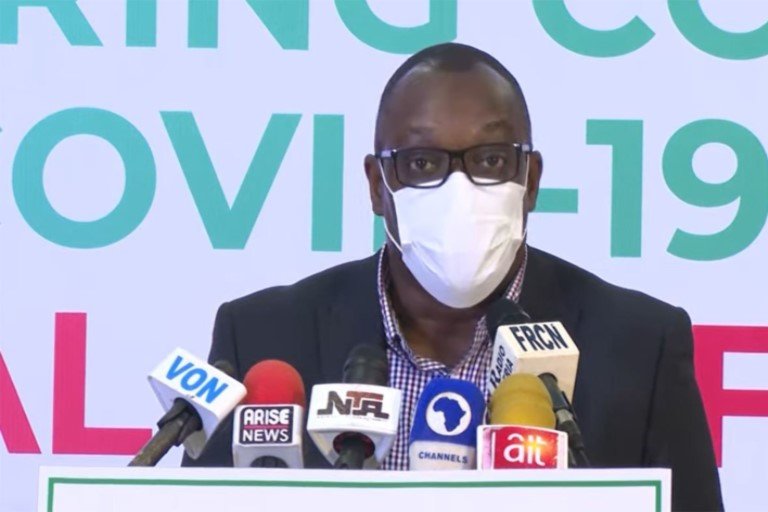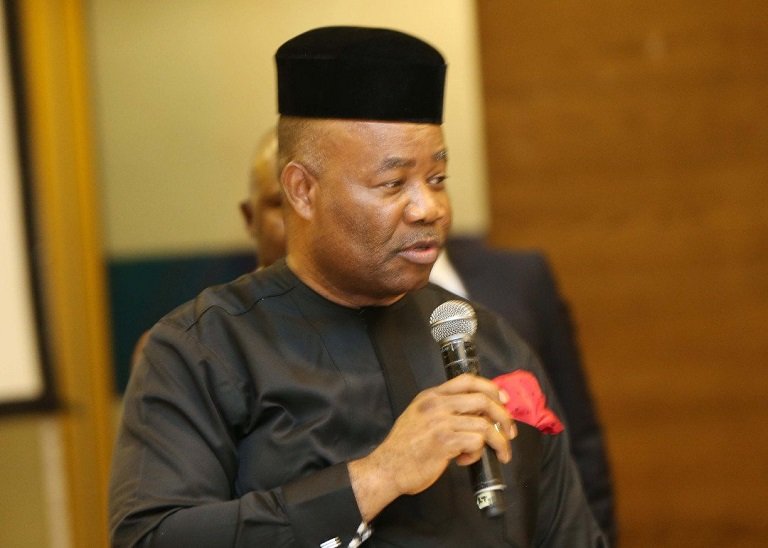Coronavirus
BREAKING: NCDC detects two cases of Omicron variant in Nigeria

The Nigeria Centre for Disease Control (NCDC) has confirmed the country’s first case of the Omicron variant.
This was stated in a press release issued by the centre on Wednesday morning and signed by the Director-General, Dr Ifedayo Adetifa.
Chronicle NG reported that the Omicron variant, a new strain of the coronavirus disease, was reported by South Africa and first detected in Botswana.
Following the discovery, countries such as the United Kingdom, Saudi Arabia, and Israel, among others, imposed travel bans on countries in southern Africa.
Similarly, the Canadian government stated that it discovered two cases of the variant from two passengers from Nigeria; however, through the Presidential Steering Committee on COVID-19, the Federal Government said that it was investigating the issue to obtain more information.
However, the NCDC on Wednesday morning said two cases of the variant were discovered through genomic sequencing. It linked the cases to two passengers from South Africa.
The latest development was announced in a statement titled: “NCDC Confirms First Case of Omicron Variant in Nigeria”, signed by the Director-General of Nigeria Centre for Disease Control, Dr Ifedayo Adetifa, on Wednesday morning.
The statement reads:
“In line with the routine travel test required of all international travellers and genomic sequencing at the Nigeria Centre for Disease Control (NCDC) through its National Reference Laboratory (NRL), Abuja – Nigeria confirmed it’s first case of the Omicron variant, also known as the B.1.1.529 lineage. Genomic sequencing of positive cases from routine day two test for all travelers to Nigeria identified two cases of Omicron variant among travelers from South Africa who arrived in Nigeria in the last week. Retrospective sequencing of the previously confirmed cases among travellers to Nigeria also identified the Omicron variant among the sample collected in October 2021.
“The two recent cases though asymptomatic have been linked to clinical care and other response activities which include contact tracing have commenced. Arrangements have been made to notify their country of origin to commence in-country response.
“According to preliminary findings in countries where this variant was earlier detected, there is insufficient evidence to suggest that symptoms associated with Omicron are different from other variants however, it may be more transmissible. There is still a lot to learn about this variant, and we continue to be guided by scientific evidence.
“The NCDC assumes this variant is widespread globally with possible community transmission ongoing in Nigeria. Our focus remains to prioritise the genomic sequencing of recently accrued samples of SARS-COV-2 positive travellers from all countries, especially those from countries that have reported the Omicron variant already.
“Since the emergence of the Omicron variant in some parts of the world, the Federal Ministry of Health (FMOH) through NCDC with the guidance of the World Health Organization (WHO), has intensified public health response measures to COVID-19 in Nigeria based on the assessment of the risk of spread of the virus. This includes the review of the national travel protocols by the Presidential Steering Committee on COVID-19 (PSC-COVID-19) has announced that travellers to Nigeria now must present a negative COVID-19 test result within 48hrs before boarding . We appeal to Nigerians to adhere strictly to these travel protocols to prevent a fourth wave of COVID-19 in the country as we combat the pandemic and these emerging variants including the Delta variant.
Recommendations for States
“Given the highly likely increased transmissibility of the Omicron variant, it is imperative to put in place measures to curb community transmission. The NCDC recommends that States ensure sample collection and testing remain widely accessible so that people who have symptoms or have been exposed to a positive case get tested quickly. States should encourage the use of the approved Antigen-based Rapid Diagnostic Test (RDT) for rapid testing of the population in public settings such as schools with accommodation facilities, workplaces, and camps.
Recommendations for the public
“The virus is more likely to spread where people gather and do not adhere to public health measures. Interrupting transmission of the virus remains our best bet and we can only achieve this through vaccination and adherence to the proven safety measures such as wearing face masks, regular hand washing and physical distancing. We appeal to business owners, religious leaders, and people in authority to take responsibility by ensuring people in their premises adhere to these measures. We strongly urge Nigerians to only share information from trusted sources including NCDC and the Federal Ministry of Health. Our safety as a country depends on our collective responsibility.











